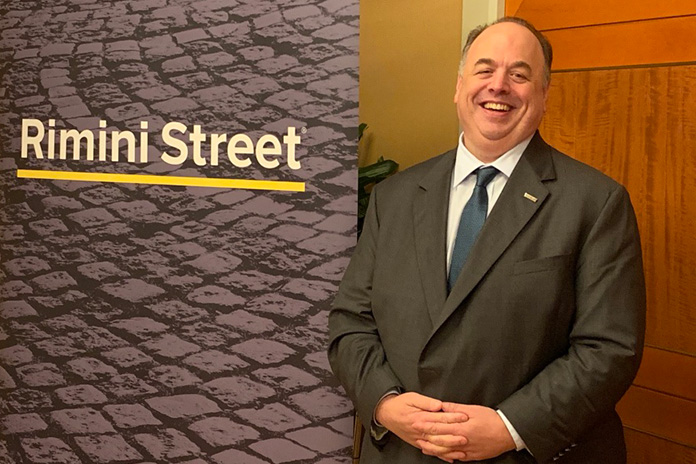
HE HAS been through the wars with his company, but Seth Ravin is still upbeat and full of optimism for what Rimini Street can offer small and medium enterprises in Asia.
The US-based company has just set up its Singapore office and aims to bring its contentious business into the region, for the benefit of enterprises that are tired of paying millions of dollars for maintenance to the big boys like SAP and Oracle.
Rimini Street provides enterprise software support services at hugely reduced fees, and also work with their clients’ existing software without the need for upgrades for at least 15 years.
A former PeopleSoft executive, Ravin germinated the business plan for Rimini Street when he felt companies could make better use of the millions of dollars they were throwing into maintenance and upgrades.
“The cost of maintenance globally in $160 billion annually. Companies like SAP and Oracle have $32 billion of that pie. And they make 90-95% profit. Annually, businesses have to pay 22% of the cost of the software to them,” Ravin explains.
“The maintenance business is like insurance. You take in a lot of money and pay out very little.”
Ravin estimates Asia has a potential of $30-40 billion of this rich maintenance pie.
Legal Streets
But Rimini Street’s journey has been far from smooth. It has been in pitched legal battles with the incumbents who are understandably keen on protecting their interests. Ravin estimates they pay out $30 million annually in legal fees.
“We have 50 lawyers in our office; more than what some law firms have,” he laughs.
Keen on disrupting the profitable enterprise sofware support business, Rimini Street barged into the mix in 2005. Named after the street Ravin lived on in Las Vegas, he set up the business in a day, but it took him six months to land the first contract.
He explained his motivation to help companies save millions of dollars for the upgrades and maintenance, which would allow them to then use the funds for business innovation.
He cited the example of Xerox who saved $100 million in maintenance fees by going with Rimini Street’s pared down service costs, while keeping the current software viable for 15 years without the need for upgrades.
Rimini Street listed in 2017 (Nasdaq: RMNI) and at the same time NASDAQ moved its maintenance services to Rimini Street.
Ravin is optimistic about the potential business in Asia. And while he will be up against his old foes again, he reckons people know a good value proposition when they see it.
The stand-off between China and the US will also offer lots of potential opportunities for businesses that might head to safer shores in the region to avoid the higher cost of doing business in the crossfire.
Given the volume of business available globally, Ravin points out: “We are not a contrarian business. We do well when times are good. But we do really well when things are bad.”
So it’s worth the David-and-Goliath battles.





















